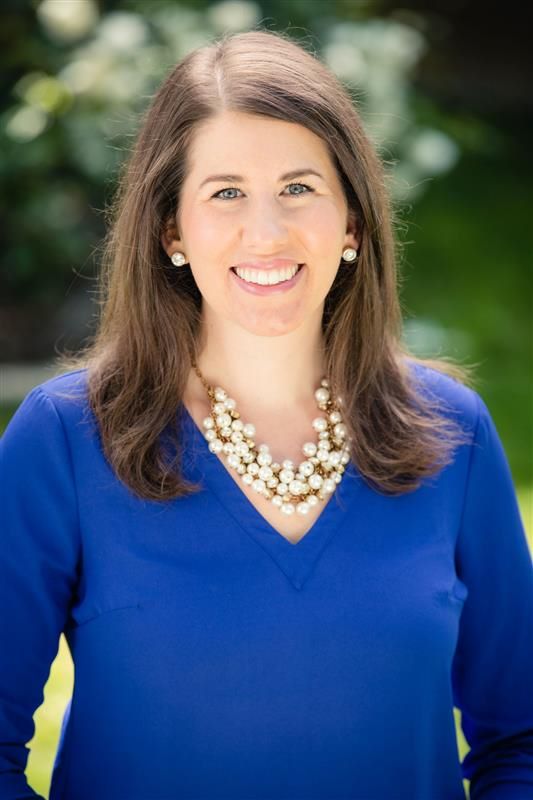Baylor University Launches Center to Advance Interdisciplinary Human Flourishing Research
Virtues researcher and psychology professor Sarah Schnitker, Ph.D., founds Baylor Research in Growth and Human Thriving Science (BRIGHTS) Center

Baylor Sciences Building (Baylor Photography)
Contact: Lori Fogleman, Baylor University Media & Public Relations, 254-709-5959
Follow us on Twitter: @BaylorUMedia
Derek Smith, Baylor University Marketing & Communications
WACO, Texas (Oct. 16, 2023) – Baylor University announced today the launch of the Baylor Research in Growth and Human Thriving Science (BRIGHTS) Center, a multidisciplinary center designed to catalyze research related to the science of human flourishing. Housed in Baylor’s College of Arts & Sciences, the BRIGHTS Center was founded by Sarah Schnitker, Ph.D., associate professor of psychology and a nationally recognized leader in virtue development research. Through BRIGHTS, Schnitker and her team will convene researchers from throughout campus and advance human flourishing research across a variety of topics.
“The new BRIGHTS Center will enable us to build on the incredible success of our researchers in human thriving,” said Brian Raines, Ph.D., associate dean for research and strategic planning in the College of Arts & Sciences. “Led by Dr. Sarah Schnitker, this center serves as a research hub for faculty in the humanities, sciences and social sciences as they ask important, fundamental questions about the human experience. They will also serve as a research accelerator, offering extensive support for finding, winning and managing external research awards.”
Areas of research focus within BRIGHTS will include antecedents of human flourishing; virtues and virtue development; contextual influences on moral attitudes and behaviors; the relationship between religion and spirituality in flourishing; flourishing assessments and interventions; a rich definition of human flourishing; and more.
“Most of the questions related to human thriving have been engaged for millennia through religious, philosophical and literary reflection, so it is essential to engage these disciplinary perspectives. However, social and physical sciences provide new methods for evaluating the extent to which different pathways to thriving are, or are not, successful,” Schnitker said. “BRIGHTS is building a community of researchers who can engage in on-going conversations around human flourishing and thriving and expand interdisciplinary research already taking place at Baylor.”
Illuminate, the University’s strategic plan adopted in 2018, lists Human Flourishing, Leadership and Ethics as one of five signature academic initiatives for focus and research growth. BRIGHTS represents a further, structured step in advancing that work alongside the goals of Illuminate.
“Human flourishing by its very nature is interdisciplinary. The human condition is complex and requires expertise from across the sciences, humanities and social sciences to yield effective outcomes for human flourishing,” said Lee Nordt, Ph.D., dean of the College of Arts & Sciences. “Baylor is poised to contribute to this emerging area of study because of the reputations of our existing scholars and because it is central to the mission of the University.”
Schnitker’s research has long advanced this focus in her Science of Virtues Lab, which has collaborated with other scholars to garner over $12 million in external funding for projects studying the spiritual impact of art, virtue formation in higher education contexts and more. In a more recent research project, Schnitker and Devan Stahl, Ph.D., assistant professor of religion and a theological bioethicist at Baylor, partnered on a project to train theologians to incorporate methods and insights of psychological sciences into their work with those around them. That project, supported by a $2.5 million grant from the John Templeton Foundation, will run through BRIGHTS.
“When I first arrived at Baylor, I was impressed with the incredibly high level of scholarship that was being produced on the topic of human thriving and flourishing in numerous departments across campus,” Schnitker said. “However, many of these researchers were not in regular conversation with each other, which seemed like a missed opportunity. Given the goals of Illuminate, we believe it will be productive to gather people on a regular basis to share research interests and findings in a way that could lead to the formation of new collaborations and grant proposals.”
Through convened conversations with faculty across campus, training in grant writing and budget construction and the recruitment of Ph.D. students and postdocs, BRIGHTS will aim to incubate additional grants and harness the skills and insights of Baylor’s growing faculty.
“Dr. Schnitker and her team are experts in the field of human flourishing research, but also in working across disciplines,” Stahl said. “They know how to form teams that will work well together and teach one another across the disciplines. This takes both humility and creativity, because much of academia is very siloed. I believe BRIGHTS will be a place where scholars can learn how to work with one another across disciplines and will be supported to do grant-funded interdisciplinary research.”
For more information, visit the BRIGHTS Center website.
ABOUT BAYLOR UNIVERSITY
Baylor University is a private Christian University and a nationally ranked Research 1 institution. The University provides a vibrant campus community for more than 20,000 students by blending interdisciplinary research with an international reputation for educational excellence and a faculty commitment to teaching and scholarship. Chartered in 1845 by the Republic of Texas through the efforts of Baptist pioneers, Baylor is the oldest continually operating University in Texas. Located in Waco, Baylor welcomes students from all 50 states and more than 100 countries to study a broad range of degrees among its 12 nationally recognized academic divisions.
ABOUT THE COLLEGE OF ARTS & SCIENCES AT BAYLOR UNIVERSITY
The College of Arts & Sciences is Baylor University’s largest academic division, consisting of 25 academic departments in the sciences, humanities, fine arts and social sciences, as well as 11 academic centers and institutes. The more than 5,000 courses taught in the College span topics from art and theatre to religion, philosophy, sociology and the natural sciences. The College’s undergraduate Unified Core Curriculum, which routinely receives top grades in national assessments, emphasizes a liberal education characterized by critical thinking, communication, civic engagement and Christian commitment. Arts & Sciences faculty conduct research around the world, and research on the undergraduate and graduate level is prevalent throughout all disciplines. Visit the College of Arts & Sciences website.
